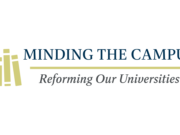Will the Twenty-Eighth Amendment be a repeal of the First? One proposed amendment might amount to that. It calls for sweeping regulations on the ability to practice free speech in politics, and even says its provisions can’t “be deemed in violation of freedom of speech rights.”
That should set off alarm bells in your head. It raises the question of why such a caveat is necessary in the first place. That exact phrase comes from the so-called “Fix It America” amendment (H.B. 1524), which was recently discussed in the New Hampshire House of Representatives, and written about in the Monitor by John Pudner of Take Back Our Republic.
The “regulations” referred to in that amendment come from a prior clause: “Congress and State Legislatures shall regulate the role of money in elections and governance…” This clause requires regulation of the spending of money on campaigns and policy advocacy (since it says the government “shall” regulate, not that it “may” regulate), which necessitates the restricting of your free speech. The reason is simple: in the modern era, you need to spend some money to spread your message to a large number of people – whether it’s placing ads or simply printing out fliers. Or for that matter, publishing a newspaper like this one.
Importantly, the amendment does not define most of its terms. “Money in elections and governance” could mean anything from giving to candidates to buying stamps so that you can send a letter to a senator. The bill claims to fight “corruption” – a term that evokes negative feelings, but is meaningless without a clear definition. Legally, it refers to quid pro quo bribery (such as trading a vote on a bill for a campaign contribution), but people often use it to mean any “bad thing” (in their view) that a public figure does. Leaving the term undefined creates a mess of confusion. The amendment also says its goal is “transparency,” which sounds good to most people, until they find out it means having the government publish their name, address, occupation, and employer on the internet when they donate to a group that discusses policy issues.
In short, “Fix It America” would harm Americans’ right to participate in politics. Its text is a dead giveaway that it seeks to grant powerful politicians new authority to trample on what’s currently forbidden by the First Amendment. Should this amendment find its way in the Constitution, it’s easy to see how past abuses could be enshrined into law.
By claiming the mantle of “transparency,” activists and media outlets could exploit the amendment’s language to push misleading narratives or even expose Americans to harassment based on their views. That happened to supporters of the ACLU of New York in 2007 and California’s Proposition 8 in 2008, as well as to critics of President Trump and Hillary Clinton in 2017, among countless other examples.
By declaring policy advocacy to be “corrupt,” government agencies could crack down on private groups at a whim. This happened when the IRS and Wisconsin’s so-called Government Accountability Board targeted conservatives, and when anti-war groups faced scrutiny from the FBI just a decade ago. The same is true of those who protest President Trump today.
So, what would this amendment “fix” anyway? Supporters argue it would curb the sway of “big donors” in politics. But without free speech for those who support challengers, entrenched incumbents would have an even bigger leg up; they could use their name recognition or media access to dominate public discourse. Electoral newcomers, who need money to spread their message and promote their candidacy, would be locked out of politics.
In fact, the ability to spend money to promote one’s beliefs has led to new voices in our democracy that used to be shut out by powerful gatekeepers. Outsider politicians like Donald Trump and Bernie Sanders were able to mount strong campaigns against well-funded rivals on the basis of small donors and media savvy, proving that deep wallets alone can’t win elections.
Supporters of Fix It America wrongly attribute our broken politics to too much free speech. Their proposed amendment won’t keep the wealthy out of politics, but it will grant incumbent politicians sweeping new powers while making it harder for regular citizens to get involved. Americans should make it clear: The First Amendment doesn’t need amending.
This post originally ran in The Concord Monitor on February 15 2018.














